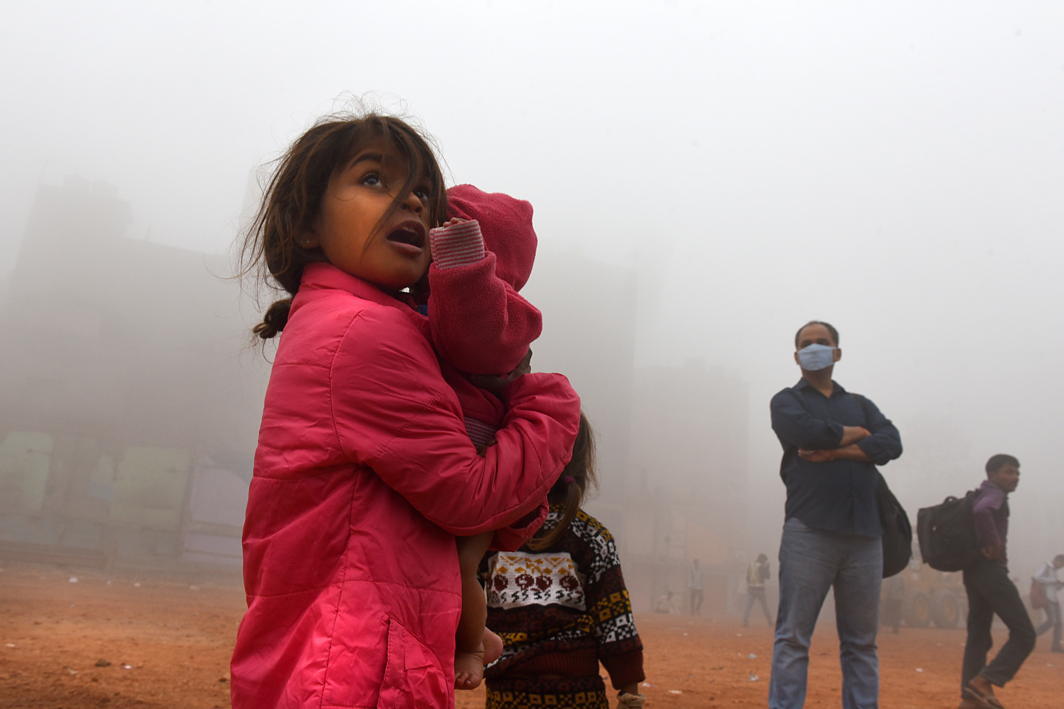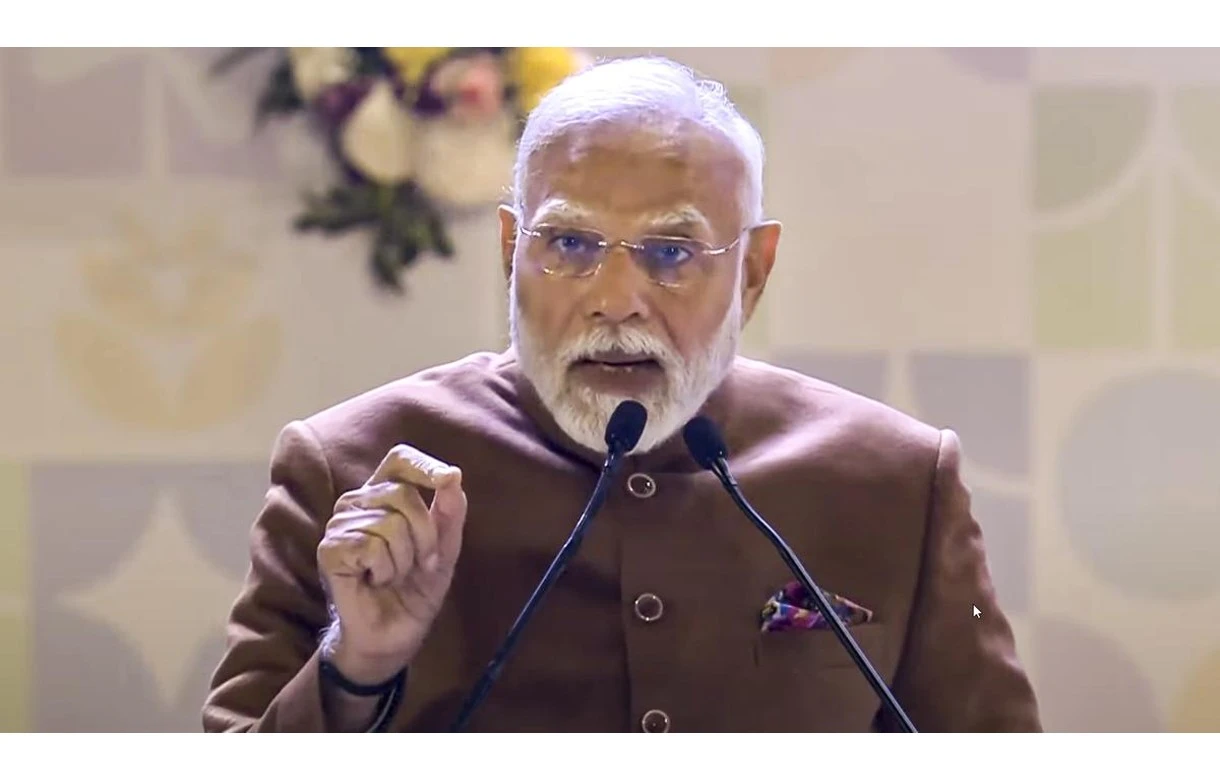[vc_row][vc_column][vc_column_text]A UNICEF report released on Wednesday, Dec 6 – a day after the first International Smog Day – says babies in South Asia face the danger of poor brain development due to air pollution.
The report comes at a time when north India, particularly Delhi and adjoining areas, battle high pollution levels with air quality swaying from ‘very poor’ to ‘emergency’ levels, restricting physical activity and forcing closure of schools.
The UN agency, in its report “Danger in the Air: How air pollution can affect brain development in young children”, said Asia accounts for more than 16 million of the world’s 17 million infants aged under one year living in areas with severe pollution — at least six times more than safe levels.
India topped the list of countries with babies at risk, followed by China.
Satellite imagery used to assess pollution levels around the world found that South Asian countries accounted for 12.2 million of the total number of affected children but that there is also a growing problem in African cities.
The report notes that breathing in particulate air pollution can damage brain tissue and undermine cognitive development – with lifelong implications and setbacks.
Air pollution has already been linked to asthma, bronchitis, and other long-term respiratory diseases.
“But a growing body of scientific research points to a potential new risk that air pollution poses to children’s lives and futures: its impact on their developing brains,” UNICEF said.
The report highlighted links found between pollution and brain functions “including verbal and nonverbal IQ and memory, reduced test scores, grade point averages among school children, as well as other neurological behavioural problems.”
Air pollutants inhaled during pregnancy can affect the developing brain of a foetus, with potential lifelong effects, says the report.
One study reports a four-point drop in IQ by the age of 5 among a sample of children exposed in utero to toxic air pollution, it said.
The report said further research was needed to study the full impact of air pollution on children’s developing brains. “As yet, we know the minimum – but not the maximum – extent of the harm. The variety of types of pollutants that are in the air across different environments make it difficult to determine the full impact of air pollution. But this growing body of research does provide an indication of the scale of harm,” said the UNICEF.
“As more and more of the world urbanises, and without adequate protection and pollution reduction measures, more children will be at risk in the years to come.”
The author of the “Danger In The Air” report, Nicholas Rees, told AFP that toxic pollution is “impacting children’s learning, their memories, linguistic and motor skills.”
UNICEF urged more efforts to cut pollution, and also to reduce children’s exposure to the poisonous smog which has frequently reached hazardous levels in Indian cities in recent weeks.
It called for a greater use of masks, air filtration systems and for children to avoid travelling when pollution levels are at their highest.
Rees said masks help “but very importantly they have to have good filters and they also have to fit children’s faces well. A mask that does not fit the face well won’t work.”[/vc_column_text][/vc_column][/vc_row][vc_row css=”.vc_custom_1512568093364{border-bottom-width: 20px !important;padding-top: 20px !important;padding-bottom: 20px !important;background-color: #a2b1bf !important;}”][vc_column][vc_column_text]Excerpt from the UNICEF press release:
The paper shows that air pollution, like inadequate nutrition and stimulation, and exposure to violence during the critical first 1,000 days of life, can impact children’s early childhood development by affecting their growing brains. Here are the main points of the report:
- Ultrafine pollution particles are so small that they can enter the blood stream, travel to the brain, and damage the blood-brain barrier, which can cause neuro-inflammation.
- Some pollution particles, such as ultrafine magnetite, can enter the body through the olfactory nerve and the gut, and, due to their magnetic charge, create oxidative stress – which is known to cause neurodegenerative diseases.
- Other types of pollution particles, such as polycyclic aromatic hydrocarbons, can damage areas in the brain that are critical in helping neurons communicate, the foundation for children’s learning and development.
- A young child’s brain is especially vulnerable because it can be damaged by a smaller dosage of toxic chemicals, compared to an adult’s brain. Children are also highly vulnerable to air pollution because they breathe more rapidly and also because their physical defences and immunities are not fully developed.
The paper outlines urgent steps to reduce the impact of air pollution on babies’ growing brains, including immediate steps parents can take to reduce children’s exposure in the home to harmful fumes produced by tobacco products, cook stoves and heating fires:
- Reduce air pollution by investing in cleaner, renewable sources of energy to replace fossil fuel combustion; provide affordable access to public transport; increase green spaces in urban areas; and provide better waste management options to prevent open burning of harmful chemicals.
- Reduce children’s exposure to pollutants by making it feasible for children to travel during times of the day when air pollution is lower; provide appropriately fitting air filtration masks in extreme cases; and create smart urban planning so that major sources of pollution are not located near schools, clinics or hospitals.
- Improve children’s overall health to improve their resilience. This includes the prevention and treatment of pneumonia, as well as the promotion of exclusive breastfeeding and good nutrition.
- Improve knowledge and monitoring of air pollution. Reducing children’s exposure to pollutants and the sources of air pollution begins with understanding the quality of air they are breathing in the first place.
[/vc_column_text][/vc_column][/vc_row]


 India News22 hours ago
India News22 hours ago
 India News18 hours ago
India News18 hours ago
 India News3 hours ago
India News3 hours ago
 India News3 hours ago
India News3 hours ago
 Latest world news2 hours ago
Latest world news2 hours ago













